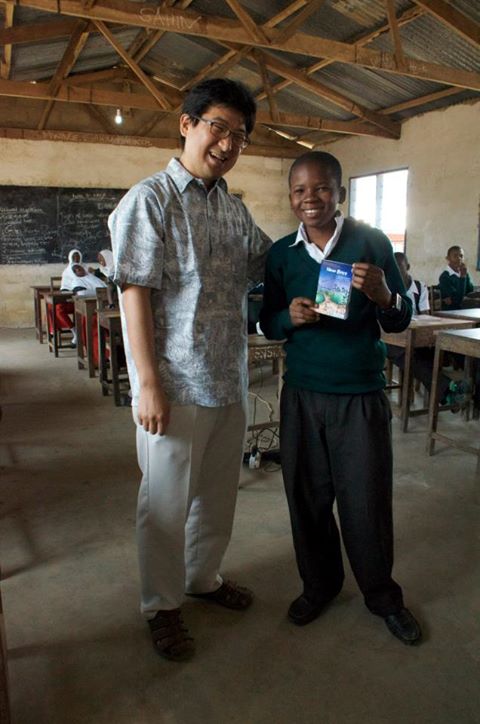
In a small building among the poorest regions of Tanzania, children’s eyes gleam with awe and enthusiasm upon receiving the published masterpieces of their work. Only a few weeks prior to having their work published, these children were illiterate.
A global non-profit 501(c)(3) organization, Seeds of Empowerment, recently published 12 books written by young authors from such underserved populations. Volunteers who took part in the organization’s 1001 Stories project transformed a barren building in Kiota, Tanzania, into a place swarming with imaginative minds and passionate teachers. The team of volunteers makes up a diverse group working together from across 25 countries to make a difference in the lives of impoverished communities.
Using software developed by the Stanford Linguistics Research Department, volunteers cultivate reading and writing skills grounded in local languages and local themes.
“The mobile learning is a powerful tool to inspire confidence, enhance capability, and unleash potential for marginalized and underserved children in some of the world’s poorest and hardest to reach areas,” said Lisa Griffin, the Chief Program Development and Research Officer of Seeds of Empowerment.
By the time the children can write on their own, they create their own fictional stories which are sent to various illustrators in the US. Selected stories are then published and sold, generating a self-supportive, entrepreneurial model for the students. All proceeds from the publications are re-invested into the local communities of the 1001 Stories Program.
“I had the opportunity to take part in this phenomenal experience, although it was definitely a challenging one,” said volunteer Isaac Kang. “After I saw the published work, I could not help but feel both a little proud of myself and amazed at the capability of the children I taught!”
To learn more about 1001 Stories and read student work, visit http://seedsofempowerment.org/soe-store/.

